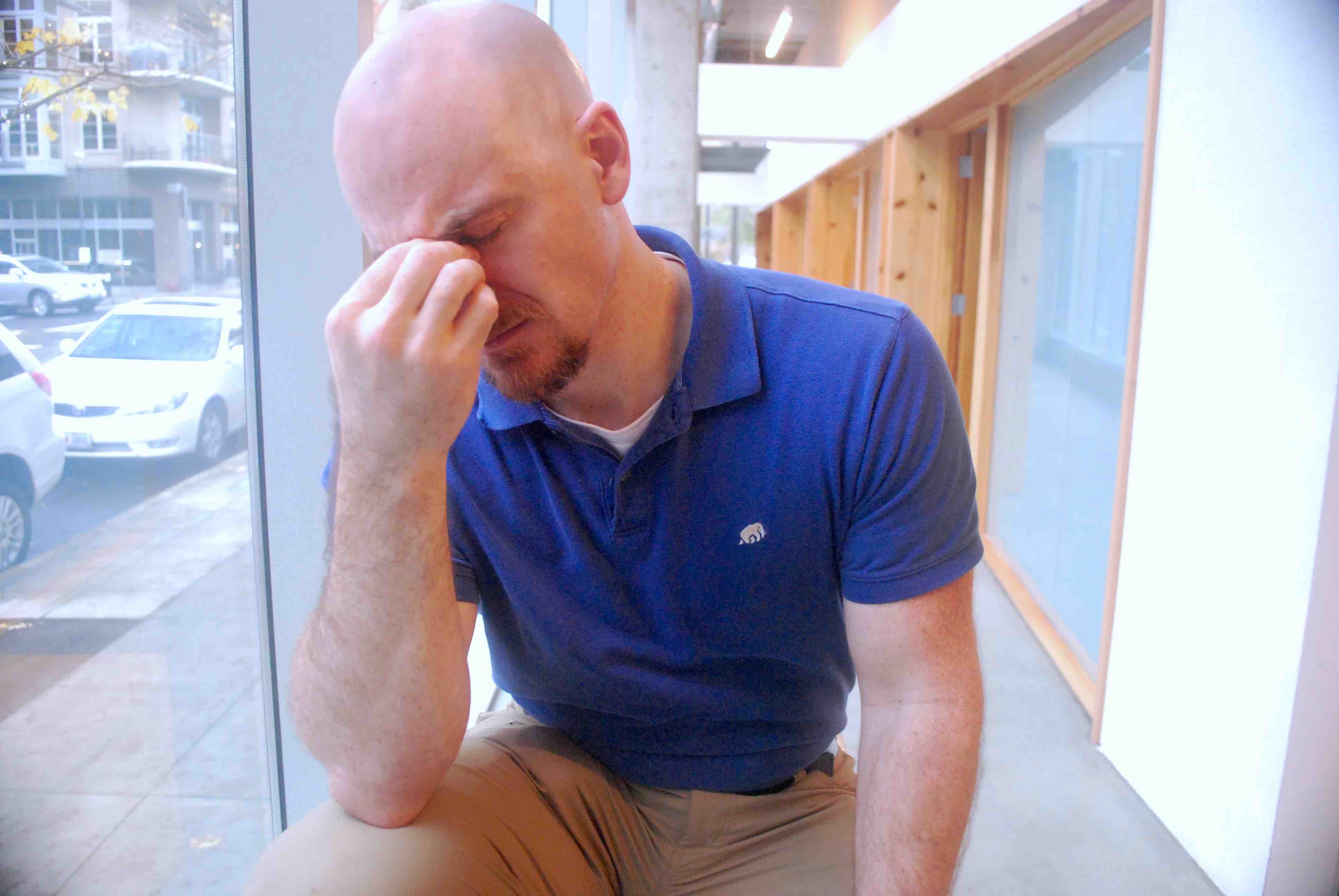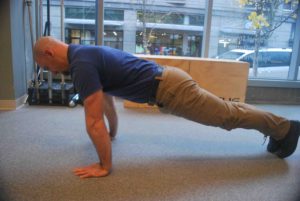
We all feel it. But how do we deal with it? AND… What is it? Why do we have it? These are all good questions. Let’s begin with a brief insight into what stress is: First off stress isn’t all bad. Eustress or “good stress,” is often a feeling of pleasure and even a motivator that enables us to live productive and fulfilling lives. That is not the stress that we’re concerned about, we’re concerned about negative stress. This is the type of stress that takes over your mind and body and acts as that crushing deterrent to simple life tasks, such as getting up out of bed, going to work, being able to enjoy time with friends and family. The number one obstacle to being fully engaged in life. But in order to deal with this stress, we must respect and appreciate what this type of stress is.
One of my favorite scientists on this subject is noted neuroendocrinologist and neuroscientist, Robert Sapolsky, who is one of the best when it comes to the topic of stress. If you don’t know about this guy, it’s time you become acquainted. Check out his 1990 article in Scientific American called “Stress In the Wild.” This is a monumental study and still just as relevant today in how excess glucocorticoids (cortisol included here folks) affects the immune systems of baboons in a shockingly negative way. Baboons live in societies very similar to our own in which there are dominate alpha types as well as the subordinate types. The cortisol levels of these baboons are constantly elevated to such a level that severe health problems begin to emerge such as cardiac and metabolic dysfunction. For us, this is translated to obesity, heart disease, diabetes, degeneration, and all of the lifestyle related issues that are nearly 100% preventable. Why is this?
Well, first let me give a very brief and simple explanation of what cortisol is and how it affects the body. Cortisol is a steroid hormone that essentially breaks things down in the body. This breaking down is also termed, “catabolic.” As opposed to anabolic, which is the opposite of breaking down. This breaking down includes fat, carbohydrates, protein, bone, and much more, which are all essential in normal metabolism. It is part of the signaling system of the liver to make more glucose, or sugar, and deliver it to the blood stream. One really interesting thing about cortisol, (and there are many things) is that it suppresses the immune system. Now this sounds bad, but it is essential in combating the body’s natural tendency of producing too much inflammation in response to illness, injury or stress. This property of combating inflammation is called ANTI-inflammatory. But, why is this bad? Like too much of any good thing, too much anti-inflammation and too much immune suppression leads to a weakened ability to combat illness and disease, as well as healing from injuries. So, to recap. Too much stress, equals too much cortisol, equals weakened immune system, equals illness. Now let’s get back to Dr. Sapolsky.
Dr. Sapolsky describes this in a way which I can’t help but agree 100% with. We are all mammals that have very primitive areas in our brains known as the limbic system, or “reptilian” brain. This is different than the neocortex which includes the prefrontal cortex. This region of our brain contains our latest adaptations in advanced reasoning and more abstract thinking. Now, when I say latest adaptations, the jury is out on when this occurred. But most agree that the modern adaptations of our prefrontal cortex are around 10-40,000 years old vs the reptilian brain, which is millions of years old!
Now what does this have to do with stress? Well, if the reptilian brain is millions of years old which is the primary stress center of our brain, this gives it tremendous control over our physiology. The stress responses that it releases helped us survive. But now with the development of our prefrontal cortex and industrialized society, we no longer experience the typical dangers that our primitive ancestors were accustomed to. Our stressors involve work, school, traffic, inter- and intra-personal issues that are just natural to our modern existence. The problem is that our primitive brain doesn’t know that. It responds the only way it knows how at this point in our evolution, by releasing glucocorticoids and making us feel “stressed.”
So this brings us back to dealing with stress. How?
#1. Community. Take it from the baboons. As soon as the alpha was removed and the subordinates could commingle, the stress dissipated. The cortisol levels dropped. Health improved. The take home message is this: Be around people who complement your existence. Have shared experiences. Sometimes even the most painful event can lead to a beautiful outcome if it’s shared.
#2. Solitude. This may seem like a contradiction but it’s not. Balance is the key. Find a waterfall, a tree, a quiet spot to just be. Ditch the digital media. Let your brain go wherever it needs to go. Exist in stillness.
#3. Exercise. In any possible way that is fun and engaging for you. The more you expose your body to this type of stress, the better equipped you are in handling negative stressors. Whether it is running a marathon, CrossFit, yoga, pilates, or goofy dancing by yourself in your tiny apartment… it doesn’t matter. Your body doesn’t care as long as you’re enjoying the activity. The enjoyment will keep you coming back and you will be healthier and happier as a result.
#4. Music. Now, I’m biased with this one, but functional MRIs continually demonstrate that music activates more areas of the brain than any other type of stimulus. Activate your brain with music to form new synapses and new experiences. Even just a long sustained note is enough to have a profound musical experience. It wasn’t too long ago when scientists discovered the sound wave of a blackhole that was vibrating 57 octaves below middle C on a piano. The note was B-flat. This note is postulated to have a vibrating timeline of 2.5 billion years! It’s a universe (or multiverse) of vibrations.
#5. Nature. This was eluded to already, but this can’t be over emphasized. Step outside. Even in the rain. In fact, this is even more important when it’s raining. Don’t let solitude turn into isolation. Put on your rain gear and pretend you’re just a kid in a sprinkler. Just get outside and be amongst all that is nature.
#6. Learn a new skill. The old adage of being too old for something needs to just vanish. You are NOT too old. That thing that you’ve always wanted to go back to and learn, but believe age has defeated you…? Just learn it. The idea that our brains are “stuck” and can’t regenerate and form new connections is so quickly becoming an archaic myth. If you believe you are incapable of new skills, STOP. Just stop! The ONE truly amazing skill of the human animal is adaptation. Learning is what we do and who we are. Don’t be anything other than who you are.
#7. Preventative Care. I saved this for last because this truly isn’t a pitch. But take responsibility for your health. Get a physical. Establish relationships with providers who will take the time to really listen to what your health goals and personal goals are. Those are ALWAYS connected! Find providers that truly know and respect this vital aspect of the human condition. Exercise regularly. Be truly moderate in your dietary choices. Remember that comfort food is a misnomer. I’m not gonna make some cutesy verbiage flip like “discomfort” food, because we’re all much too sophisticated for that. 🙂 But, don’t mistake the cheap instant thrills of traditional “comfort” food for the agonizing regret and self loathing that over indulging brings. We are all active participants in our own care and true prevention begins with the individual.
*WORST CASE*
Just get a massage.
-Dr. David Dutton D.C.
References:
http://news.stanford.edu/news/2007/march7/sapolskysr-030707.html
https://blogs.scientificamerican.com/beautiful-minds/gorillas-agree-human-frontal-cortex-is-nothing-special/

